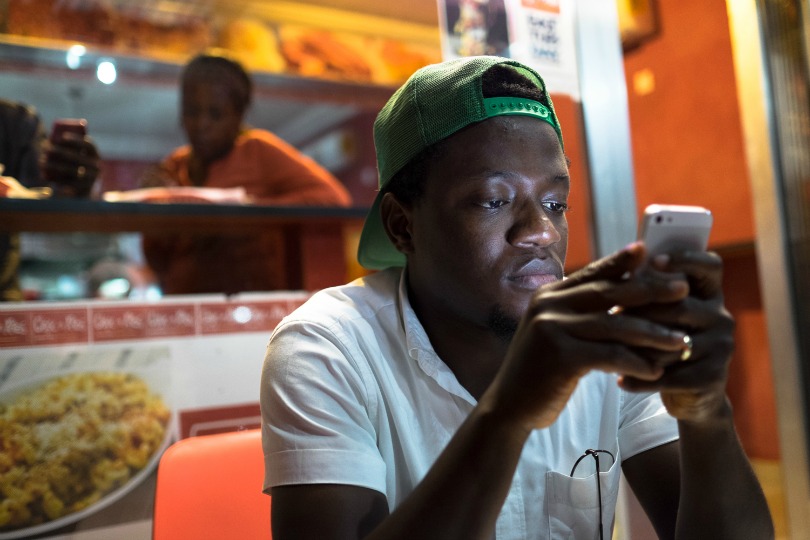The mobile phone is playing a crucial role in African society today. This is highlighted by a factoid that believes “the average Sub-Saharan African woman touches her hair 37 times a day and touches her phone 82 times a day.”
Mobile penetration in Africa has risen to 67 percent as of 2012; with researchers predicting “internet use on mobile phones will increase 20-fold in the next five years – double the rate of growth in the rest of the world!”
Africa is considered to be the world’s fastest growing smartphone market. Some estimates suggest that by 2016 there will be one billion mobile phone subscriptions on the continent, equaling Africa’s total population.
Some advances that have come out of Africa’s mobile revolution include mobile money services like Kenya’s M-pesa, that allow people to transfer funds on their mobile phones- even those without bank accounts! Also, the spread of mobile phones across remote regions of Africa is enabling farmers to better market their products. One example is iCow, an SMS solution, guiding livestock farmers on best practice. Another application, M-Farm, eliminates the middlemen by democratizing market information required by small-scale farmers to better negotiate prices.
Bogus drugs are a serious problem in many African countries. An estimated 45 percent of drugs in Nigeria are counterfeit. With the advances of the mobile phone in the health sector, when a patient buys drugs in a pharmacy, he just scratches off a panel to reveal a 10-digit code. He sends that number in a text message (which is free of charge) using a short dialing code. The patient receives a message confirming, or other-wise, the authenticity of those drugs within seconds. MPedigree is one example; this app validates genuine medicines and brings clarity through one of the most basic of technologies. The mobile phone in Africa has also helped to increase transparency in politics, as activists use mobile applications to monitor political violence and fight against state control of free speech.
In 2012, CNN declared that mobile technology had “immense” potential to transform Africa’s “dysfunctional educational system…as mobile phones – cheaper to own and easier to run than PCs – gain ground as tools for delivering teaching content”. Already, we are starting to see the beginnings of change. The BBC also reported an increasing number of initiatives using mobile technologies to distribute educational materials, support reading, and enable peer-to-peer learning and remote tutoring through social networking services. Mobiles are streamlining education administration and improving communication between schools, teachers and parents. Mobile phones are already being used to improve teacher training and as a way of staying in touch with university students, but can they really improve access to, as well as the quality of higher education on a significant scale?






